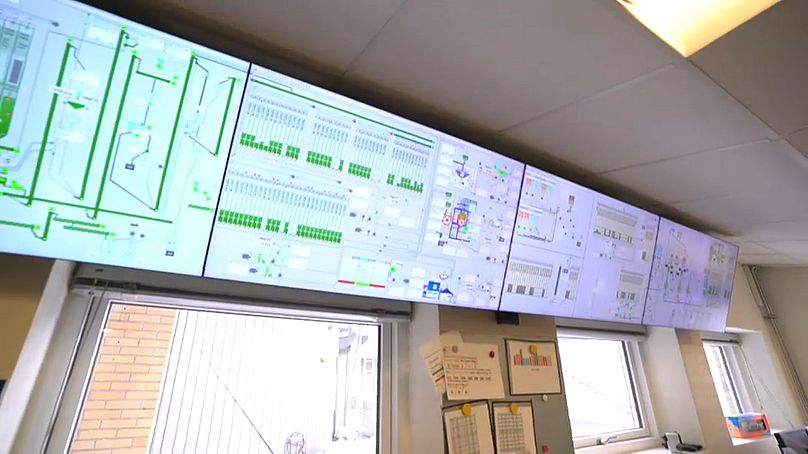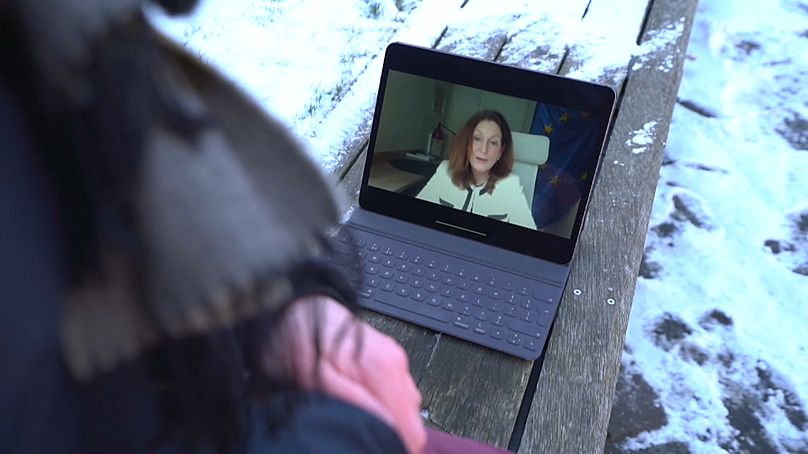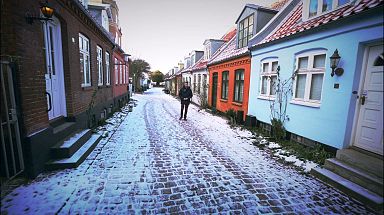Business Planet heads to the Danish city of Aarhus to see why one coffee company has made green and digital transformation a top priority in its bid to improve productivity.
Business Planet heads to the Danish city of Aarhus to see why one coffee company has made green and digital transformation a top priority in its bid to improve productivity.
BKI Food is Denmark’s biggest coffee producer. The firm’s plant near Aarhus roasts and packs coffee from all over the world.
Family-owned since 1960, BKI knows innovation is a matter of corporate survival. It's the reason why it has helped pioneer what it says is the most environmentally friendly coffee bag on the market today.
“We are the first coffee company to produce a metal-free, 100% recyclable foil. We have reduced the carbon footprint [by] 25% and the plastic [by] 15%. That makes environmental sense and that makes sense in a business way,” explains BKI's Factory Manager Ib Hauberg.
Digital transformation
In addition to embracing green tech, the firm has harnessed the latest digital technology to modernise its factory systems to increase productivity.
“We have digitised and automated all processes through the factory, especially in our roasting area. This has really improved the output from our factory and if not, we would not have been in business anymore,” says Hauberg.
Boosting transformation
To help with its transformation plans, BKI turned to the European Advanced Manufacturing support centre. It seeks to guide SMEs so they can become the so-called factories of the future.
The EU project is just one element of Europe’s wider industrial strategy to boost green and digital tech.
Kerstin Jorna is the Director-General of the European Commission's DG Grow for Internal Market, Industry, Entrepreneurship, and SMEs. She told Business Planet that the EU is determined to help companies make the most of this technological shift.
“What the Commission is doing is understanding where’s the business case for you, where’s the business case for green transition, where’s the business case for digital transition, many of the companies today will have seen the business case for digital transition and we’re accompanying it with investment, with strategy, adapting the regulation to make that happen.”
I understand the difficult patch [businesses] are in and we are trying to help [them} through that, but we also need [businesses] to work with us to look into the future, to imagine the projects that we will be able to help get investment for, to make it greener, to make it more digital."
Jorna concluded by insisting businesses should participate in Europe's flagship industry event, EU Industry Days.
"It’s more than 100 events and you should be bothered to take part in it because that’s where you can listen to the experiences of others. You can get a better grasp of the opportunities but in particular, it will give you an idea of where we are all heading and it’s worthwhile being there. It only takes a click.”
Useful links
European Advanced Manufacturing Support Centre
Manufacturing Academy of Denmark (MADE)
Useful facts
- EU Industry Days is the European Commission's flagship annual conference on EU industrial policy.
- Each year the event gathers participants from across Europe and beyond: representatives from industry, trade unions, national and regional authorities, public bodies, innovators, and civil society.
- This year EU Industry Days is fully online and focuses on the theme of opportunities.
- It includes panel discussions, keynote speeches, networking opportunities, digital exposition, podcasts, and announcements concerning the various opportunities offered by the industrial transition.














